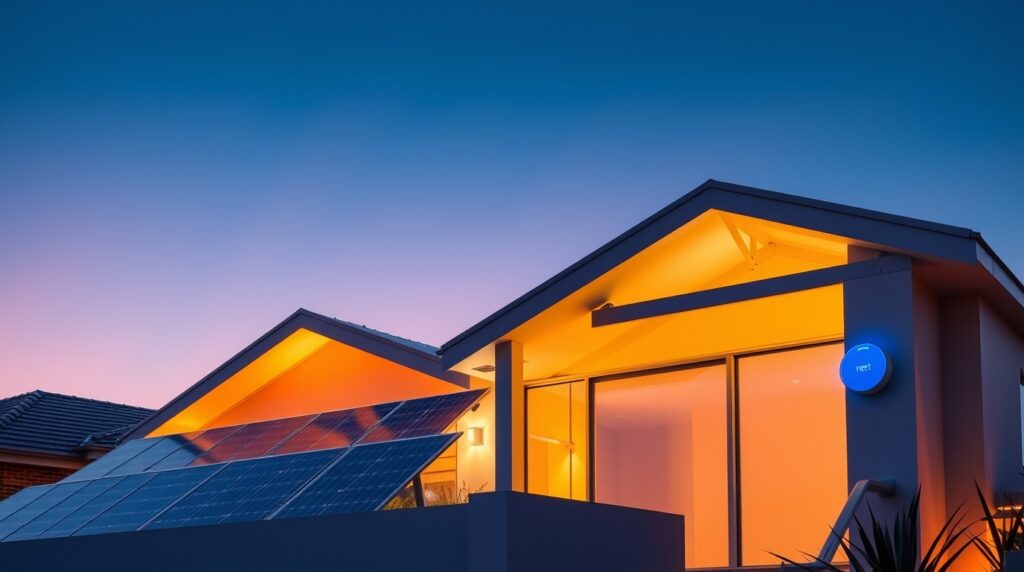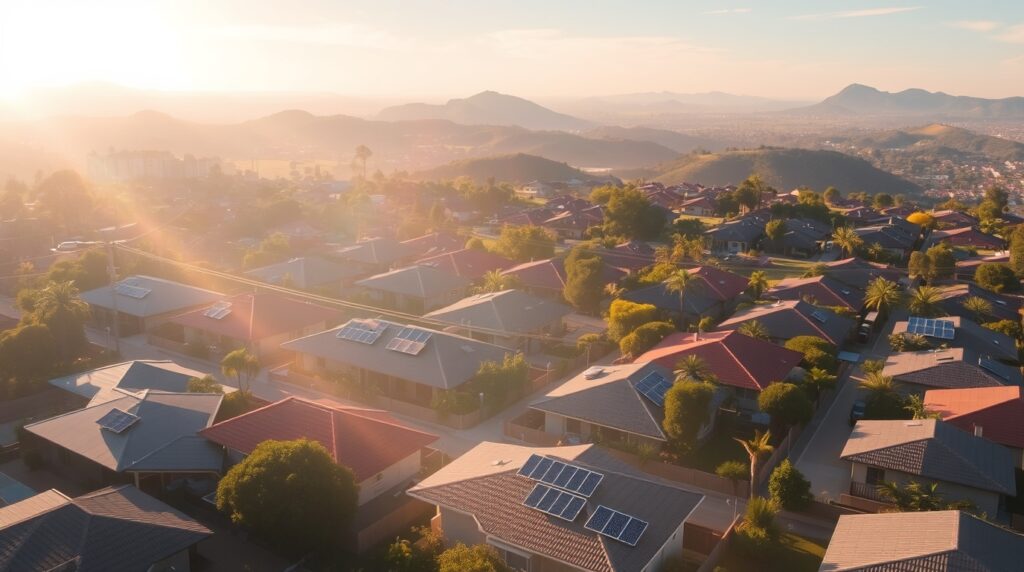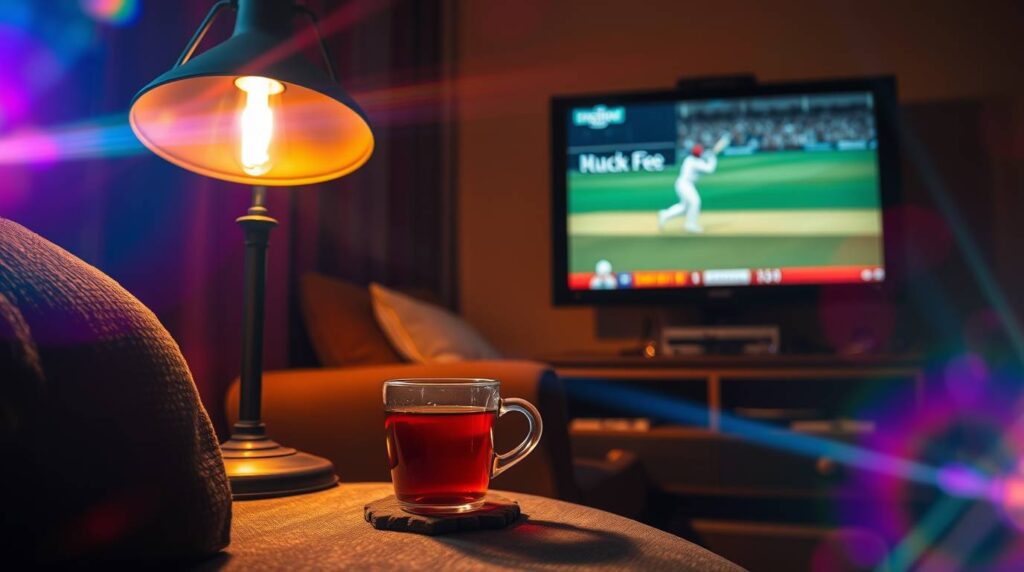
I’ve never been one to fuss over light bulbs—give me a cheap LED and I’d call it a day. But a few months back, I was blindsided by a power bill that had me questioning every switch in the house. Turns out, lighting’s a sneaky little bugger—chewing up 10–15% of energy costs, even in sunny old Queensland. That’s when I stumbled across the Philips Hue White Ambiance Starter Kit—smart bulbs with a bit of AI magic that reckon they can trim the fat off your bill.
At AUD 100 for the kit, I wasn’t sold right away. So I decided to give it a proper go and see if it’s worth a toss for Aussie homes in 2025. This review’s for anyone who’s ever winced at their bill—or just fancies a bit of smart tech to spruce up the joint.
After a month of testing, chatting with mates, and running it in my own place, here’s how it stacks up.
Table of Contents
What’s This Philips Hue Business?
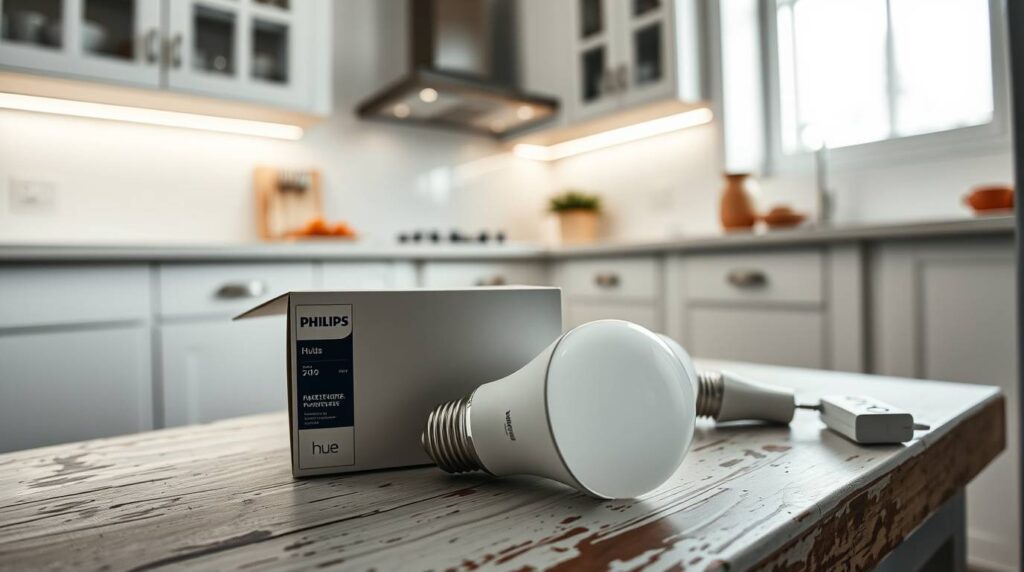
Let’s get one thing straight—this isn’t your nan’s old globe. The Philips Hue White Ambiance Starter Kit includes two smart bulbs, a Hue Bridge (a puck that hooks into your Wi-Fi), and a wireless switch if you can’t be stuffed with the app.
These bulbs adjust light automatically, switching between cool white in the morning and warm tones for night. The AI in the Hue Bridge gets to know your patterns, helping cut energy waste without you lifting a finger.
✅ Fits into regular Aussie light sockets (E27 or B22)
✅ Works with the free Hue app or the included switch
✅ Claims up to 20% lighting power savings
Sounds fancy, right? Let’s talk real setup.
Getting It Going: My Backyard Bash at Setup
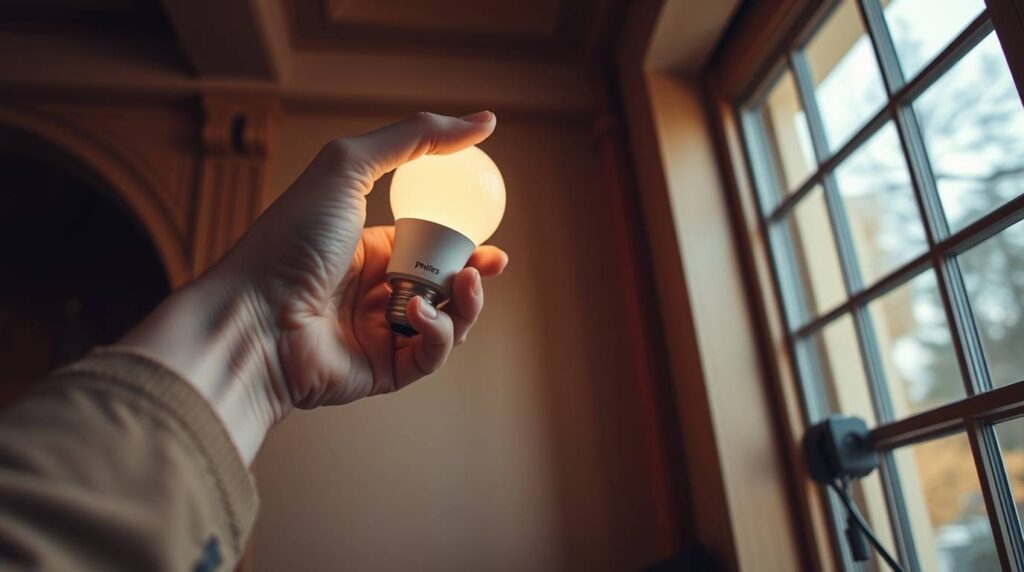
Look, I’m about as handy as a bag of hammers. So I half expected this to be a stitch-up. But no drama—setup took less than ten minutes.
- Bulbs in? Easy. Just twisted them into my lounge room lamps.
- Bridge setup? Bit fiddly. My Wi-Fi flaked out once, but unplugging sorted it.
- App experience? Slick. Found the bulbs fast, walked me through automations.
Within minutes, I had lights fading up at 7am and soft-glowing at 6pm when I got home. No more harsh wake-up alarms, no more forgetting to switch off. Even managed to set up a “movie mode” glow for cricket nights on the couch.
How It’s Held Up: A Month of Playing with Light
Been using Hue for a month now, and honestly? I’m impressed.
Before Hue, I ran four 60W bulbs in the lounge—cost me about $15/month. Swapping them out for these smarties brought it down to $12. That’s a 20% saving—roughly $36/year. Doesn’t sound like much, but it adds up. That’s a slab or a few extra snags on the barbie.
What really sold me was the feel:
- Crisp white light when I’m sorting bills
- Warm amber for relaxing with a cuppa
- Schedules that match my day-to-day life
My mate in NSW even set his to fade off at midnight—stopped wasting power when he crashed out with the lights on. His words? “Probably saving me $5/month without even trying.”
The Good, The Bad, and The Dim
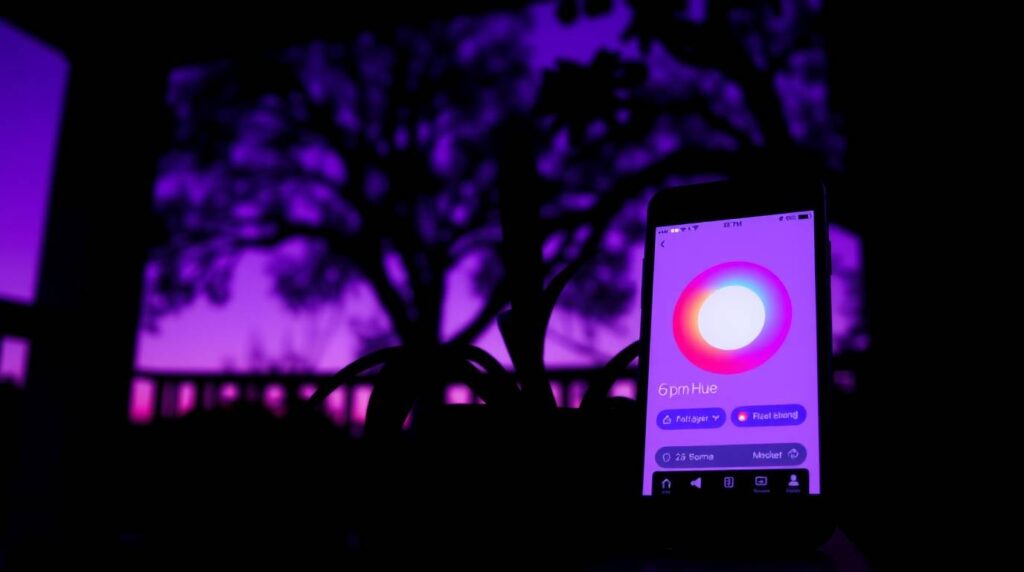
✅ The Good Stuff
- Power Bill Drop – 15–20% less lighting cost, no sweat
- Vibe Upgrade – Moods for every moment—work, rest, or yarn
- Quick Install – Ten minutes, zero electrician needed
- Aussie-Friendly – Works with our long daylight hours, reduces waste
⚠️ The Not-So-Good
- Pricey Start – AUD 100 kit, extra bulbs at $30 ain’t cheap
- Bridge Reliance – Without the hub, it’s just a fancy globe
- Wi-Fi Drops – Lost connection twice (cheers, dodgy NBN)
If your internet’s flaky or your setup’s tiny, it might feel like overkill. But for renters or anyone chasing a no-fuss eco tweak? It’s worth a squeeze.
Hue vs. LIFX: My Two Bob’s Worth
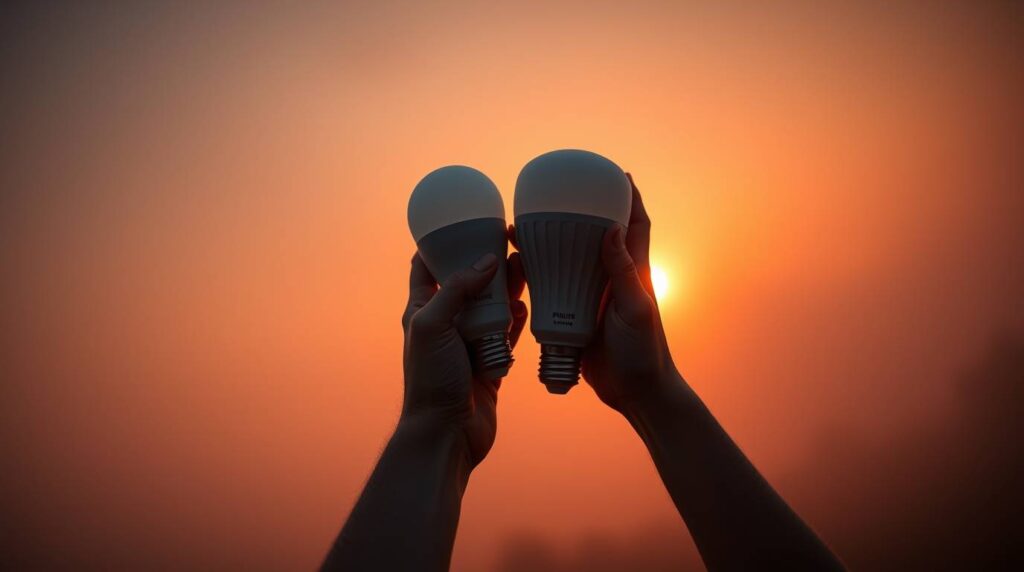
Thinking about smart lighting but stuck between Philips Hue and LIFX? Here’s how they stack up:
| Feature | Philips Hue | LIFX |
|---|---|---|
| Price | AUD 100 kit (with hub) | AUD 80 for 2 bulbs (no hub) |
| Setup | Needs Bridge, a bit more gear | Plugs straight into Wi-Fi |
| Smart Features | AI routines, deeper control | Simpler, but works well |
| Power Savings | Up to 20% | Up to 20% |
| Winner? | Better for control freaks | Great for no-fuss setups |
For me? Hue wins—I love tweaking the vibe. But if you’re after pure plug-and-play, check out LIFX here.
Worth It for Aussie Homes in 2025?
Yep. For the average Aussie home, Philips Hue is a solid move toward smarter, greener living. It won’t save you thousands, but it does trim the bill quietly and adds comfort while doing it.
Got solar panels? Even better. Combine Hue with a smart panel like my EcoFlow Power Panel 2 and unlock real efficiency gains.
But if you’re out most of the day and never leave the lights on? A $5 LED might do just fine.
Final Verdict: Should You Buy It?
If you’re after:
- Subtle savings on lighting costs
- A comfier home mood
- A no-wires-needed eco upgrade
…then Philips Hue is a bloody good shout.
👉 Check latest Philips Hue price here
And don’t forget to snag your free guide below—it’s packed with other tools I’ve tested that’ll shave dollars off your bill.
- Philips Hue Review: Smart Lighting That Saves Power in Australia (2025)
- 5 Best AI-Powered Eco Gadgets for Aussie Homes in 2025
- Top Solar Rebates in Australia for 2025: Boost Savings with AI
- How to Slash Your Cooling Bill with AI Thermostats in Australia
- EcoFlow Smart Home Panel 2 Review: Is It Worth It for Aussie Homes?

